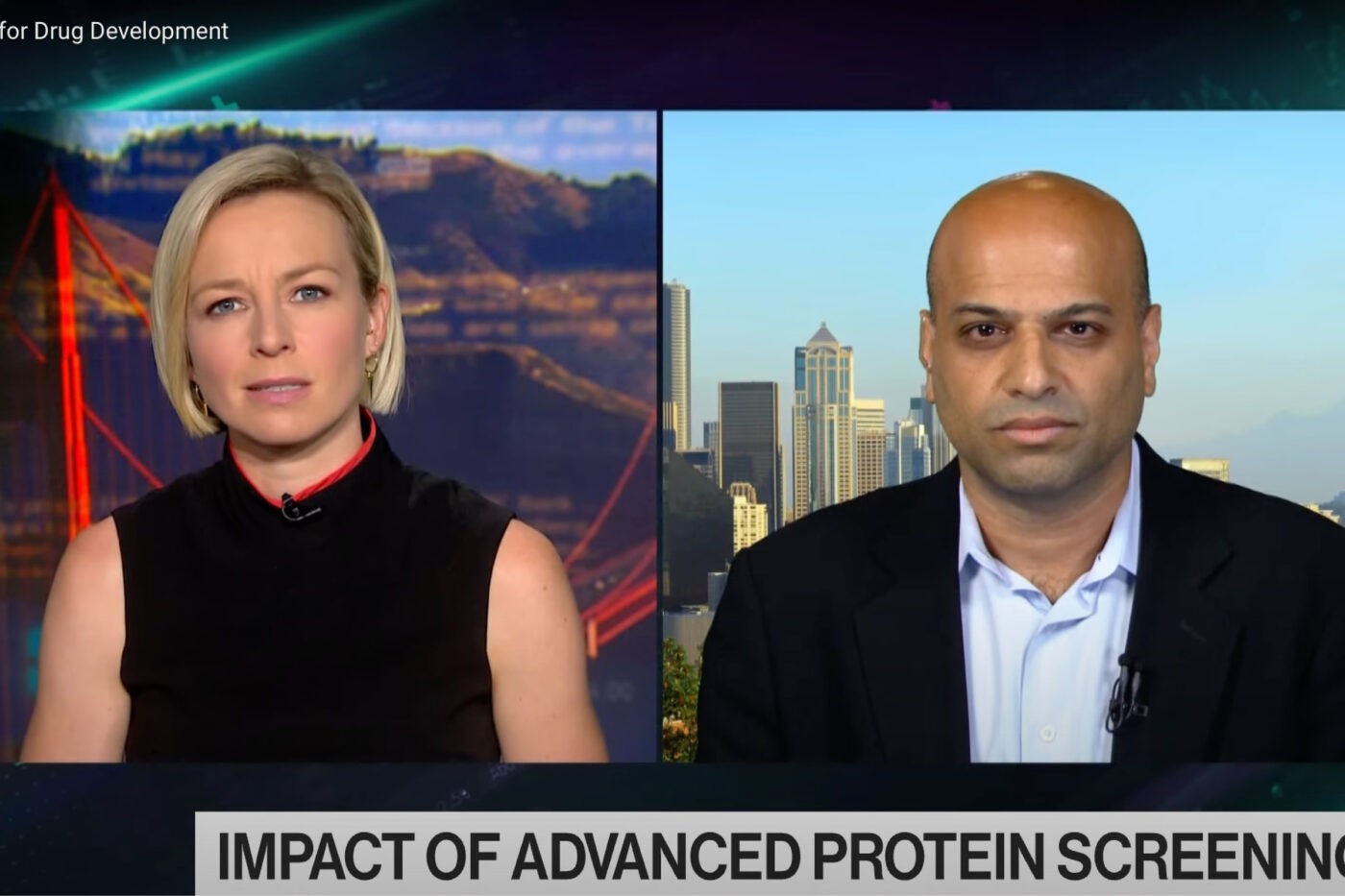
Translating Proteomics “Ask me anything” episode featuring special guest Don Kirkpatrick
Nautilus Biotechnology
July 30, 2025
On this episode of Translating Proteomics, Parag, Andreas, and special guest Don Kirkpatrick answer questions submitted by the Translating Proteomics community. They cover:
- Needs in plasma proteomics
- How proteomics impacts drug development – with special guest Don Kirkpatrick Ph.D.!
- How lifestyle impacts the proteome
- How the Nautilus Proteome Analysis Platform is impacting tau and Alzheimer’s disease research
Stream this episode on YouTube, Apple Podcasts, or Spotify.
Chapters
00:00 – Intro
01:22 – Question 1 – What are we missing in plasma proteomics and do we need absolute plasma protein abundance?
10:11 – Question 2 – Can you provide examples of proteomics driving key clinical insights or drug development efforts?
26:31 – Question 3 – How does lifestyle impact the proteome? 34:44 – Question 4 – How does Nautilus’ technology create a unique breakthrough in terms of tau and Alzheimer’s disease?
45:16 – Outro
References
Shome et al., 2022 – Serum autoantibodyome reveals that healthy individuals share common autoantibodies
https://www.sciencedirect.com/science/article/pii/S2211124722006489
LaBaer Lab paper investigating autoantibody levels in plasma and their relationship to health.
Sylman et al., 2018 – A Temporal Examination of Platelet Counts as a Predictor of Prognosis in Lung, Prostate, and Colon Cancer Patients
https://www.nature.com/articles/s41598-018-25019-1
Mallick lab paper investigating temporal changes in platelets and their associations with cancer biology.
Krönke et al., 2014 – Lenalidomide causes selective degradation of IKZF1 and IKZF3 in multiple myeloma cells
https://www.science.org/doi/10.1126/science.1244851
Seminal paper describing selective protein degradation caused by lenalidomide.
Fink and Ebert 2015 – The novel mechanism of lenalidomide activity
https://ashpublications.org/blood/article/126/21/2366/34644/The-novel-mechanism-of-lenalidomide-activity
Review of research elucidating the mechanisms of lenalidomide activity
Ndoja et al., 2025 – COP1 Deficiency in BRAFV600E Melanomas Confers Resistance to Inhibitors of the MAPK Pathway
https://www.mdpi.com/2073-4409/14/13/975
Describe links between kinase inhibitor vemurafenib and changes in ETV transcription factor degradation
Song et al., 2022 – RTK-Dependent Inducible Degradation of Mutant PI3Kα Drives GDC-0077 (Inavolisib) Efficacy
https://aacrjournals.org/cancerdiscovery/article/12/1/204/675622/RTK-Dependent-Inducible-Degradation-of-Mutant-PI3K
Use proteomics to discover that inavolisib acts through selective degradation of mutant PI3Kα
Canon et al., 2019 – The clinical KRAS(G12C) inhibitor AMG 510 drives anti-tumour immunity
https://www.nature.com/articles/s41586-019-1694-1
Covers the development of an inhibitor of KRAS mutant KRAS (G12C).
Schneider et al., 2024 – Feeding gut microbes to nourish the brain: unravelling the diet-microbiota-gut-brain axis
https://www.nature.com/articles/s42255-024-01108-6
Review on the gut-brain axis
Webpage for Johanna Lampe’s Lab at Fred Hutch Cancer Center
https://www.fredhutch.org/en/faculty-lab-directory/lampe-johanna.html
Guseh et al., 2020 – An expanded repertoire of intensity-dependent exercise-responsive plasma proteins tied to loci of human disease risk
https://www.nature.com/articles/s41598-020-67669-0
Work investigating the relationship between exercise, the plasma proteome, and health
Human Proteome Organization (HUPO) webpage with resources focused on proteomics in space
https://hupo.org/Human-Proteomics-at-Extreme-Conditions
Joly et al., 2025 – Large-scale single-molecule analysis of tau proteoforms
https://doi.org/10.1101/2025.06.26.660445
Nautilus preprint using Iterative Mapping of proteoforms to measure tau proteoforms in Alzheimer’s disease and related dementias samples.
Stream this episode on YouTube, Apple Podcasts, or Spotify.
MORE ARTICLES

